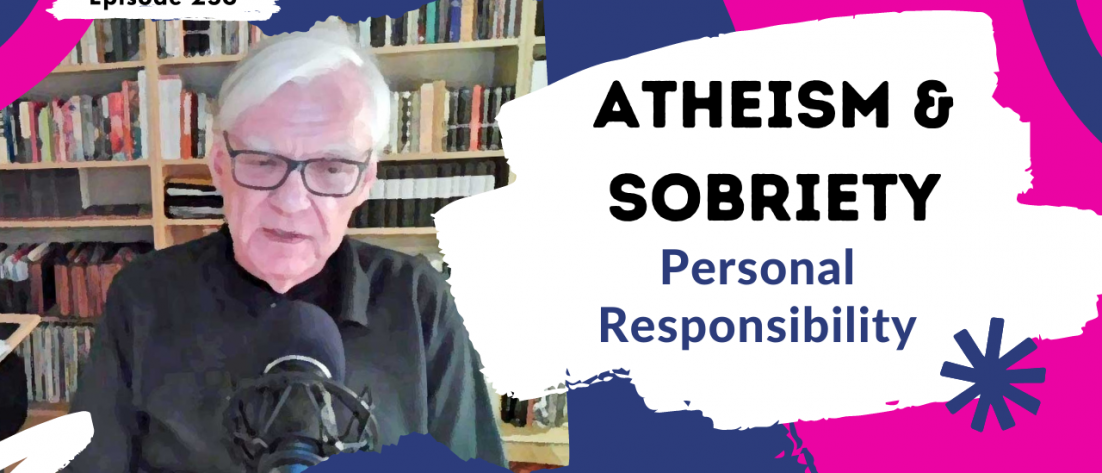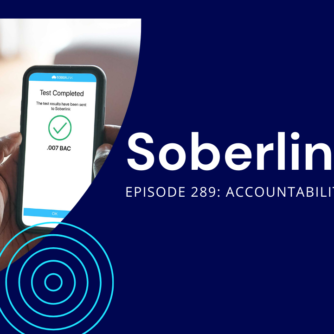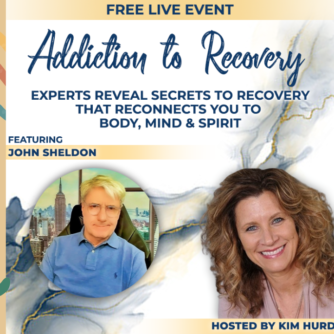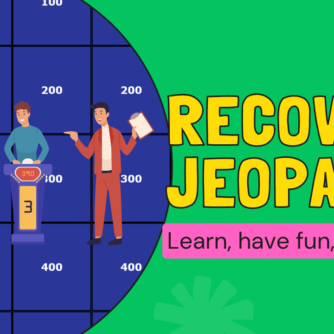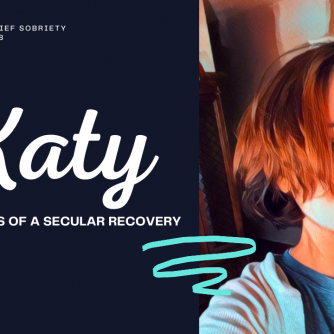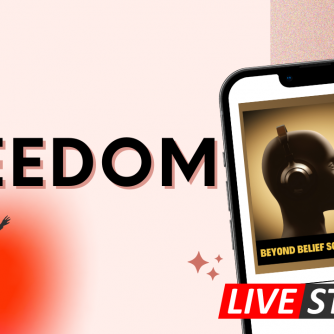John Huey discusses the second essay in his five-part series on Atheism and Sobriety. This episode focuses on personal responsibility and recovery from the perspective of an atheist, and how John’s atheism was a primary driver of his recovery.
Personal Responsibility and Recovery – An Atheists View
By John Huey
To be yourself in a world that is constantly trying to make you someone else is the greatest accomplishment.
Ralph Waldo Emmerson
Self-Reliance
As atheists, the only reality we know is the reality apprehended by our senses and manifested in the world as it is presented to us.
For me, there is no luxury of an alternate reality or a living fantasy world such as in the remarkable edifice, constructed over many centuries, by the Roman Catholic Church. We are forced to see things as they are and self-reliance, being inherent in any free thought, predominates. That, in turn, can become the basis of a rational assessment of a way forward in response to alcoholism and/or addiction which can continue unless we chose to alter our consciousness chemically or by means of supernatural philosophies, which nearly always render a secular user/adherent dependent on something outside himself or herself while not acting in her or his best interest as a non-believer.
Even in artistic pursuits, where the inspiration lies, in great part, in the construction of alternate views of reality, artists who are atheists can find that they are grounded by the necessity of self-knowledge and the actualization of individual personal vision along with the exploration of the beauty inherent in a world based on fact. This can be so even as the imagination soars in various forms of revery.
The real world, the truth on the ground as it’s seen, is, in its own way, transcendent. A failure of the powers of perception that succumbs to the misdirection of a drink or a drug or in the belief in things that are supernaturally incorporeal, can come, no matter where you are on the spectrum of non-believers, with the most severe consequences.
Anecdotally, after many years of observing other addicts and alcoholics in recovery from all societal, educational, and socio-economic levels, it became obvious to me that many of those who share our condition, particularly those who face continual and chronic relapse, suffer from a critical deficit of the imagination. Mostly, they fail to step up to the proposition that making a commitment to rectify their circumstances requires taking their fate into their own hands via a declaration of personal responsibility that manifests in a clear “moment of decision” about their drinking and/or drug use. (See note #1)
This thought might seem at odds with some theories of addiction that imply that brain chemistry, or structural neurological deficits, may be at the root of our difficulties and that assertions of personal will and self-determination are no match for the addictive process itself. To me, such assumptions, in the absence of firm and definitive science, are a dangerous admission of defeat.
In addition to knowing that there is no possibility of divine guidance or revelation is the knowledge of the abiding fact that cognition is not mystical, and that our reactions to reality are entirely personal in that we have only ourselves to rely on in advancing toward a true commitment to total abstinence.
This commitment to personal responsibility for our own recovery should not be misconstrued as selfishness or self-obsession. It is merely a recognition that, as atheists, who encounter a real world in real time, that true self-knowledge, as regards our own condition, begins with this very acknowledgement of personal value and self-love. It is not egocentric so much as it is self-actualizing and self-sustaining to be cognizant of this.
What would we find ourselves left with in the absence of this sense of personal responsibility?
In addressing this topic, I in no way mean to lessen the severity and intractability of what I know to be a profound and extremely difficult condition to rectify. In my own case I drank for an additional 13 years after fully realizing, at a very distinct point at 25 years of age, that I absolutely needed to stop. As I have said elsewhere many times before, mere knowledge of the problem, in my case, was obviously not sufficient to rectify it.
The process of taking this certain knowledge of the problem and translating that into the ability to fully step up to my own part in it was long indeed. I was fortunate that, despite the delusional behavior as regarded my continued drinking, I had the thorough grounding in the real world that my atheism afforded me so that when the cruel, final, self-imposed moment that was my actual “bottom” did come that I was able, without the assistance of any system of spiritual belief, to finally take that initiative to assume my place in this through an assertion of individual accountability. It gave me a life, at that long-delayed moment in time, that led me where I am today as a sober person decades later.
Living in a material world, the constructs engendered by the reality of any situation involving drinking or drug use becomes impossible to avoid without the construction of fanciful monuments to our own addictive “land of dreams” where the ever-elusive fantasy of using safely and responsibly resides. Standing up to one’s own dreams and misapprehensions can be incredibly difficult and most of us go to great lengths, over very long periods, to sustain those delusions. Like any “great beast” or adversary those delusions need to be confronted or they will surely continue to perpetuate themselves and, in many cases, fatally wound us in the end.
Lacking a tremendous amount of reinforcement from the world at large, and being in a widely reviled minority group, a self-actualizing consciousness is required to be a truly committed atheist. This steady state, while being seemingly difficult to achieve, is, in fact, nearly always at the root of our success when we fully step up to conduct our own business and take necessary action.
Though concern for others may be a sometimes-critical part of an initial motivation to stop drinking or using I could see, in my own history, that I would nearly always delay and prevaricate until I truly began to act for myself. By extension, in the end, if we are thinking critically and rationally, we finally do act for ourselves through the assumption of burdens and responsibilities which are uniquely our own. We are not anyone else’s weight to bear. This fact, in some respects, is the essence of personal responsibility in recovery.
Human rights are conferred upon us by women and men, not gods, and an assertion of those rights is only possible in the absence of tyranny. What better way to declare our independence from the tyranny of alcohol and/or drugs than to stand for our lives and sanity in the clear light of reason, absent dogma, or the abstractions of so-called “spiritual” beliefs, to reclaim our own ground for ourselves.
I learned, early on in my sobriety, to comprehend that there is, for me, no intermediate stage involving any “steps” or “belief”, other than the acceptance of a level of accountability as a prerequisite for self-preservation. There was no need to consult a “spiritual” land of dreams to replace the old delusional state associated with my drinking.
As a lifelong committed atheist, I have always been able (sometimes well, sometimes poorly) to assert the power of human volition on the purely personal level. The key element, for me, has been the separation of my own power of volition from the exercise of such powers by anyone else.
Personal responsibility, at the last, is also the responsibility not to impose my own vision on others. I may be able to assist in some respects, in terms of clarity and definitions, by articulating my own positions but, as an atheist, I do, of necessity, refuse to canonize any “articles of faith”, particularly mine, as an assertion of belief for others. The only conclusions I can draw are my own.
The goal of this sense of individual responsibility in recovery is, at least in terms of my own final aspirations and aims, perhaps best expressed by some additional words from Emmerson:
“Nothing is at last sacred but the integrity of your own mind.”
(Note #1 Please see the reprint of my article regarding making a decision now archived on the SecularAA site. The Secular Alcoholic and The Moment of Decision | Secular Members of Alcoholics Anonymous (aasecular.org) )
Links
Atheism and Sobriety No. 1 | The Moral Center
Our Sponsor
Sober Link: https://soberlink.com/bbs
